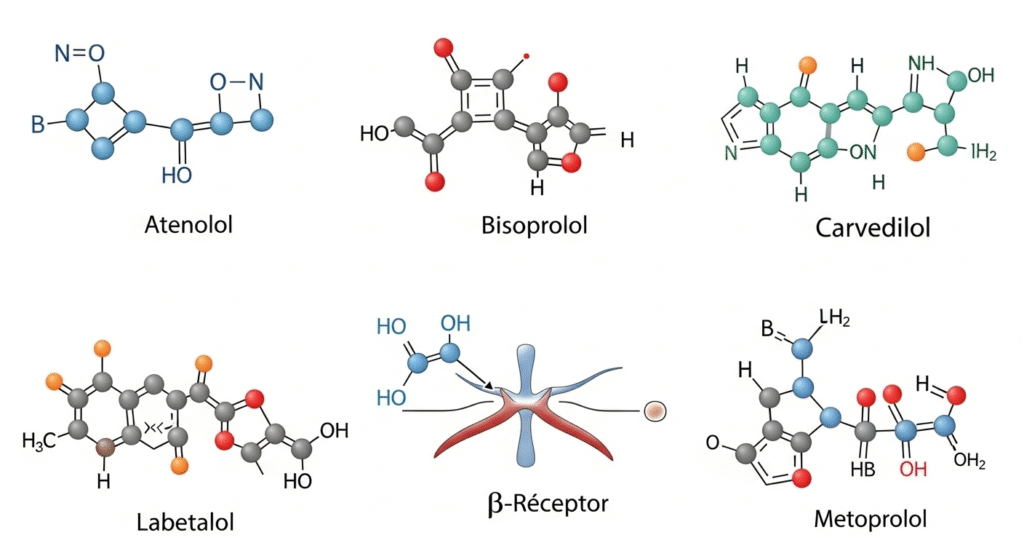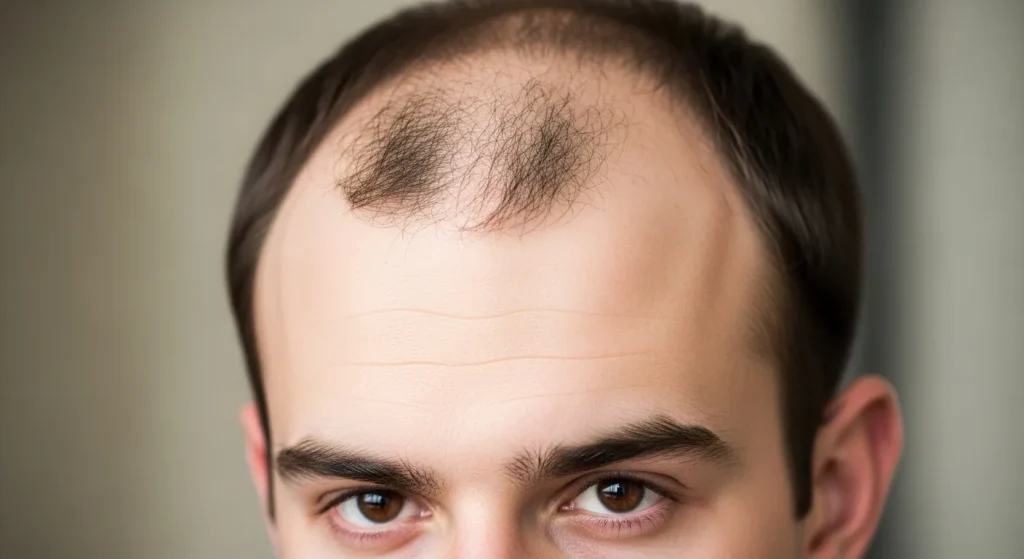Worried your blood pressure medication might be thinning your hair? You’re not alone. Many people search for beta blockers that don’t cause hair loss as they try to manage heart health without compromising their appearance.
In this article, we uncover hair-friendly beta blockers, explain how medication can impact hair growth, and share expert advice on managing both safely. Discover safer options, patient stories, and medical insights to help you take control with confidence.
Understanding the Link Between Beta Blockers and Hair Loss
What Are Beta Blockers and How Do They Work?

Beta blockers, or beta-adrenergic blocking agents, are commonly prescribed to treat high blood pressure, arrhythmias, angina, and anxiety. They work by blocking the effects of adrenaline, slowing the heartbeat, and reducing blood pressure.
Some well-known beta blockers include:
- Propranolol
- Metoprolol
- Atenolol
- Bisoprolol
- Nebivolol
While effective for cardiovascular conditions, beta blockers can also affect other bodily systems, including hair follicles.
Why Do Some People Experience Hair Thinning?
Hair loss linked to beta blockers typically occurs due to a type of telogen effluvium — a condition where hair prematurely enters the shedding phase. This usually manifests a few weeks or months after starting the medication.
Possible mechanisms:
- Disruption of the hair growth cycle
- Nutritional depletion or hormonal shifts
- Reduced scalp circulation or follicular stress
While not everyone will experience hair loss, some individuals are genetically or hormonally more sensitive to these side effects.
The Role of Telogen Effluvium in Drug-Induced Hair Loss
Telogen effluvium is reversible and temporary. It usually causes diffuse thinning rather than patchy baldness. Identifying the cause early — such as a new medication — can help in timely reversal.
Which Beta Blockers Are More Likely to Cause Hair Loss?
Common Offenders: Propranolol, Atenolol, and Metoprolol
Some beta blockers have a higher likelihood of causing hair-related side effects. Based on clinical data and anecdotal reports, the following drugs are more frequently associated with hair thinning:
- Propranolol – Commonly used for anxiety and migraine prevention; has been widely reported in hair loss forums.
- Atenolol – A selective beta-1 blocker often linked to telogen effluvium.
- Metoprolol – Frequently used for hypertension and heart failure; associated with reported cases of hair thinning.
Mechanism: How These Medications May Affect Hair Growth
These beta blockers may:
- Push hair follicles prematurely into the resting (telogen) phase
- Impair microcirculation to the scalp
- Interact with hormonal pathways influencing follicle health
Hair loss is typically dose-dependent and may resolve after stopping or changing the medication.

Beta Blockers That Don’t Cause Hair Loss (or Have Lower Risk)
Safer Beta Blocker Options Based on Patient Reports
Some beta blockers appear to have a lower risk of causing hair loss, either due to their selectivity, improved formulation, or patient tolerance. These include:
- Bisoprolol – A cardioselective beta blocker with fewer central nervous system side effects.
- Nebivolol – Not only selective but also vasodilatory, potentially improving scalp circulation.
- Acebutolol – Known for its intrinsic sympathomimetic activity, which may reduce the risk of adverse effects.
While no beta blocker is completely free of side effects, these are generally better tolerated for hair retention.
Hair-Friendly Blood Pressure Alternatives
If beta blockers are not tolerated, other blood pressure medications may be considered:
- Calcium channel blockers (e.g., Amlodipine): Rarely linked to hair loss.
- ACE inhibitors (e.g., Lisinopril): Usually hair-neutral, though some may report minimal effects.
- ARBs (e.g., Losartan): Often preferred for those with hair concerns.
Always consult your doctor before switching medications.
Doctor-Recommended Substitutes: What to Discuss With Your Cardiologist
Ask your healthcare provider:
- Can I switch to a more hair-friendly beta blocker?
- Would a lower dose reduce hair thinning?
- Are there non-beta-blocker options suitable for my condition?
Expert Insights on Managing Medication-Induced Hair Loss
When to Suspect Your Medication Is the Cause
Hair loss related to beta blockers usually:
- Begins 1–3 months after starting the medication
- Presents as diffuse thinning
- Improves after medication adjustment
If you’re unsure, a dermatologist can perform a hair pull test or trichoscopy to confirm.
How to Protect Your Hair While Managing Blood Pressure
Nutritional Support & Supplements
Support hair health with:
- Biotin
- Zinc
- Vitamin D
- Iron (ferritin level monitoring)
- Protein-rich diet
These can strengthen follicles and reduce shedding.
Hair-Safe Lifestyle Tips While on Medication
- Avoid high-heat styling
- Reduce emotional stress (linked to telogen effluvium)
- Massage your scalp regularly for blood flow
- Avoid tight hairstyles and chemical treatments
Scalp Health & Topical Solutions
- Use mild, sulfate-free shampoos
- Consider topical minoxidil under supervision
- Apply essential oils like rosemary for stimulation (with caution)

FAQs About Beta Blockers and Hair Loss
Do all beta blockers cause hair loss?
No. Some, like Bisoprolol and Nebivolol, have a lower risk. Hair loss varies by individual response.
Is beta-blocker hair loss permanent?
Usually not. Telogen effluvium is typically reversible with medication changes or supportive care.
How long after starting beta blockers does hair loss begin?
Typically, within 1 to 3 months of starting or increasing the dose.
What should I ask my doctor about alternatives?
Ask if you can switch to a hair-friendly beta blocker, lower your dose, or consider a different class of blood pressure medication
Choosing the Right Medication Without Compromising Hair Health
Balancing cardiovascular health with hair wellness is possible. If you’re noticing thinning after starting a beta blocker, don’t panic. Speak to a medical expert about switching to beta blockers that don’t cause hair loss, explore safe alternatives, and take action early. With the right plan, you can protect both your heart and your hair.
Concerned about medication-related hair loss?
Book a consultation with Dr. Rana Irfan, an ABHRS and ISHRS certified surgeon in Islamabad today — a trusted expert in hair restoration and medication side effects. Get customized advice, supportive treatments, and a clear plan to regain confidence.
